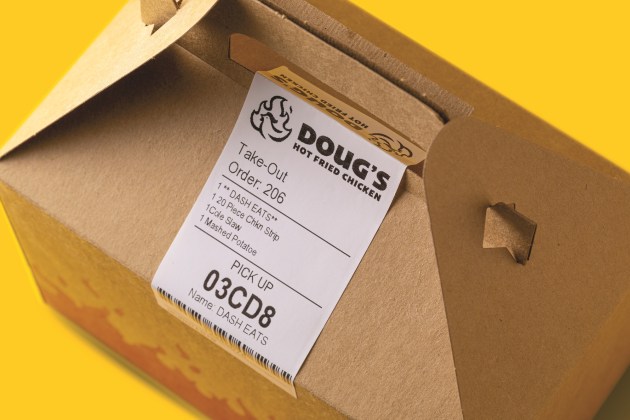Avery Dennison explores how linerless labels can benefit the quick-service restaurant sector, which has seen continued growth since the Covid boost, and is set to hit US$430bn in Asia alone within three years.
The rapid growth rates have significant implications for the quick-service restaurant (QSR) sector, from cost efficiencies to ingredient sourcing. And, with increasing scrutiny on brands’ ESG practices, the repercussions for the sector’s environmental impact will be closely watched.
At first glance, labelling may not seem to be a significant factor but it can play an important part in the success story of QSRs. It improves accuracy and efficiency in the ordering process, helping improve customer experience and boosting brand reputation and business performance. Labelling can also play a part in keeping customers safe by ensuring any customisation is immediately noted, such as food allergies and substitutions.
What are linerless labels?
Labels are traditionally formed of three parts: the first is facestock, or the paper on which the printing is done; the second part is a pressure-sensitive adhesive, which adheres the facestock to a substrate; and the third is a liner that carries the face and adhesive, preventing labels in a roll from sticking to each other, and which is usually discarded after the label is applied.
As the name implies, a linerless label does not include the third element. Instead it uses a release coating on the facestock which prevents the labels from sticking to each other in the roll while allowing the labels to be applied easily and cleanly. This technology uses around a third less materials while allowing significantly more – up to 50 per cent more – labels to be included on similar sized rolls.
These outcomes can deliver better productivity, profitability and lower environmental impact – significant wins for QSR brands.

Decade of innovation
Avery Dennison launched its first linerless solution more than a decade ago, and the intervening 10 years have seen significant advances in technology. The result is AD XeroLinrDT, a linerless direct thermal label that can deliver the speed, accuracy and sustainability the QSR sector needs.
Great Value: Our solution means restaurants can print variable length labels. This reduces empty space, maximising the number of labels that can be printed and reducing costs by up to 21 per cent.
Accuracy + Efficiency = Profitability: Brand reputation – as well as profit margins – relies on getting orders right the first time, every time. AD XeroLinrDT completely cuts out handwritten orders, speeding up the order process. It also allows 50 per cent more labels to be fitted onto each roll which, in an industry dominated by small margins, reduces applied costs by nearly a quarter.
More labels per roll also creates efficiency savings with fewer roll changes needed which in turn means more printer uptime.
Works in all environments: Whether the QSR serves cold drinks or piping hot food, labels need to stick and stay stuck to packaging. Paired with industry-leading adhesive solutions, our linerless labels do exactly that for temperatures up to 80 degrees celsius and irrespective of whether the food is moist or dry – a critical factor when you need to take into account delivery drivers.
Safe and sustainable: As we have seen, eliminating liners can significantly reduce waste. Using our solution, brands could cut three-quarters of the carbon emissions associated with their label printing processes – a significant saving in Scope 3 emissions. Reducing waste also helps reduce disposal costs, further boosting the bottom line.
The growth of the QSR sector in Asia shows no signs of slowing. For businesses keen to take advantage of the opportunities ahead, now is the time to review how linerless labeling can create better outcomes.
This article was first published in the May-June 2024 print issue of PKN Packaging News, p30.






